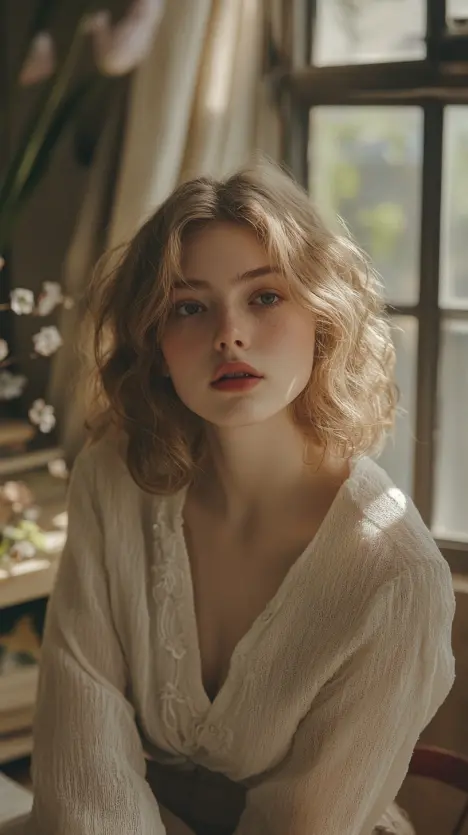The Art of Cinematic Portraiture: Exploring the Film Photography Aesthetic
- Aesthetic Archive

- Jan 12, 2025
- 1 min read
The Essence of Cinematic Portraits
Cinematic portraits are more than just photographs; they’re an invitation to feel something. By blending elements of film and fine art, these images evoke a mood that transports viewers into another time or place. Key characteristics of cinematic portraits include:
Natural Lighting: The use of soft, directional light streaming through a window creates a dreamy, intimate ambiance.
Muted Tones: Warm, desaturated colors set the mood, giving the photo a timeless, almost vintage quality.
Storytelling Details: From vintage-inspired outfits to subtle props like books or flowers, each element adds to the narrative.
Film Grain Texture: The subtle grain replicates the look of film, adding depth and character to the image.
How to Recreate the Look
Want to create your own cinematic portraits? Here’s a step-by-step guide to achieving the same timeless effect:
Choose a Simple, Meaningful Setting: Opt for uncluttered spaces with a few storytelling props. Think old wooden furniture, neutral walls, or a cozy corner by a window.
Master the Light: Use natural light from a window during golden hour. For added drama, hang sheer curtains to diffuse the light.
Style Your Subject: Select clothing in neutral or earthy tones, with vintage-inspired details. Minimalist makeup and soft, natural hair complete the look.
Edit with Intention: In post-processing, desaturate colors slightly, add a warm tint, and apply a subtle film grain to enhance the cinematic feel.






Comments